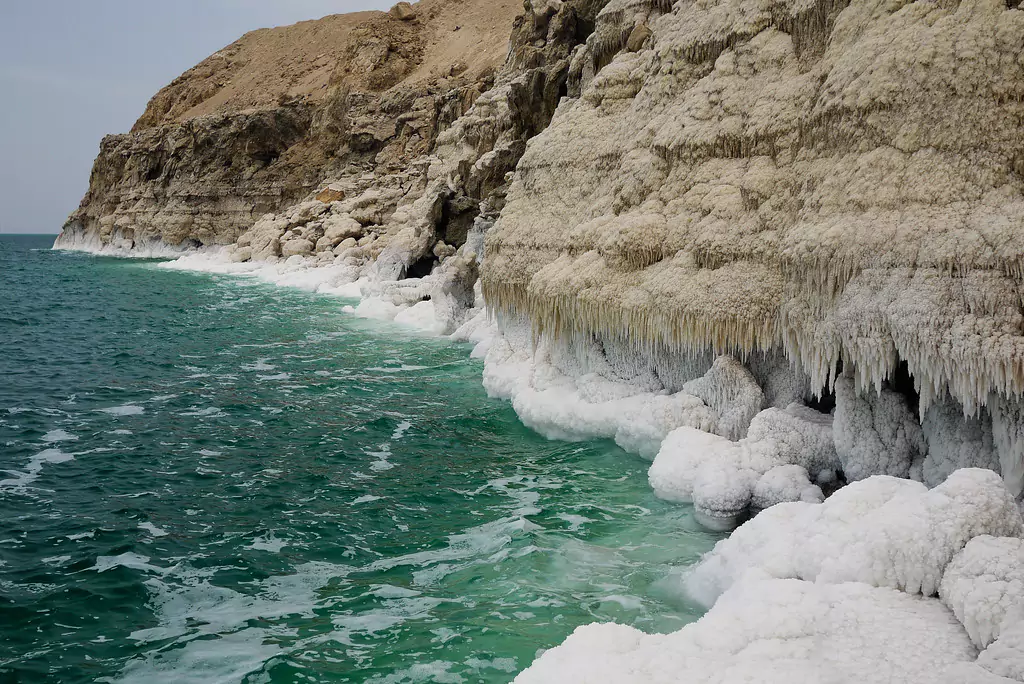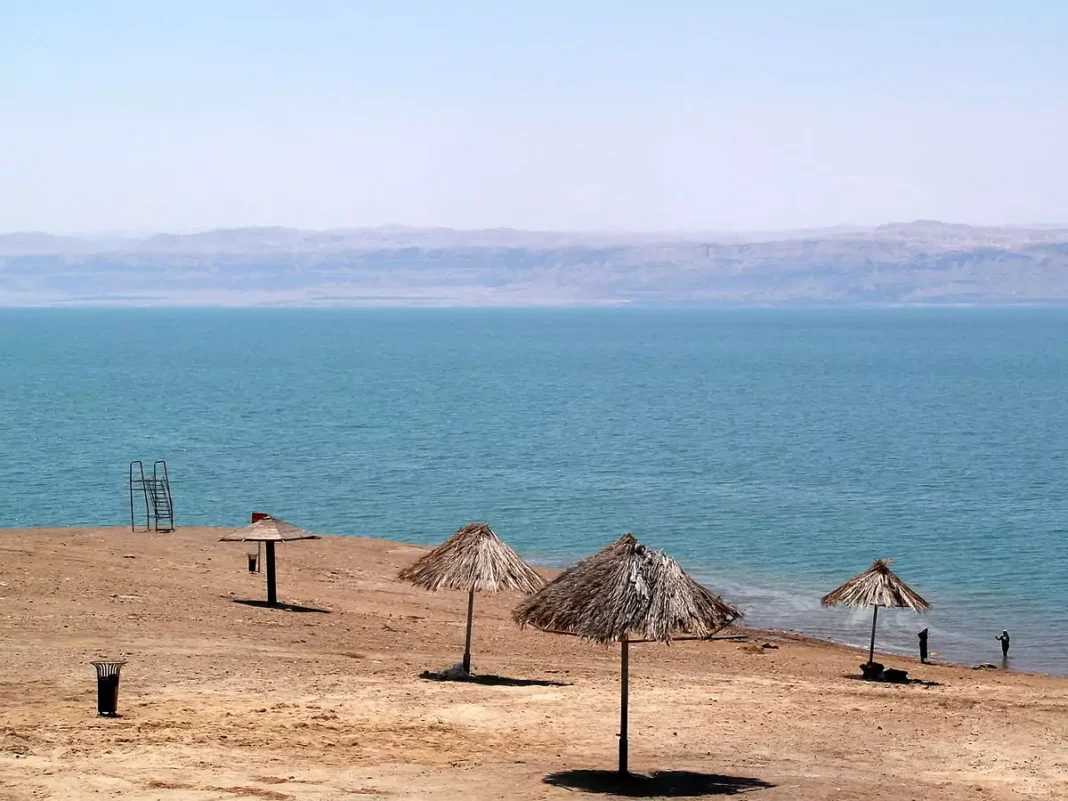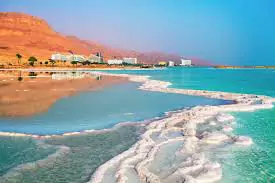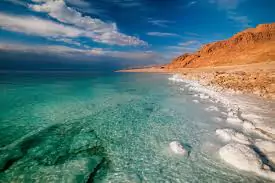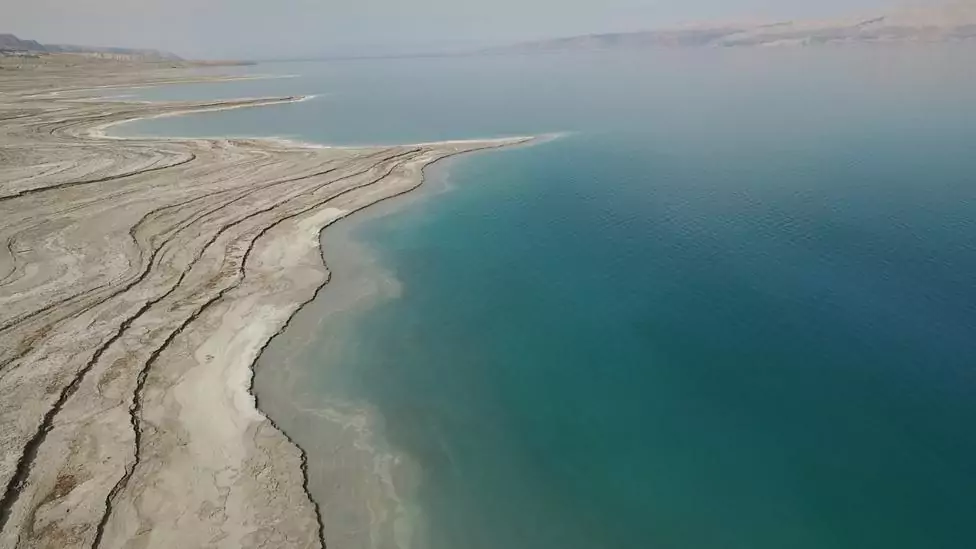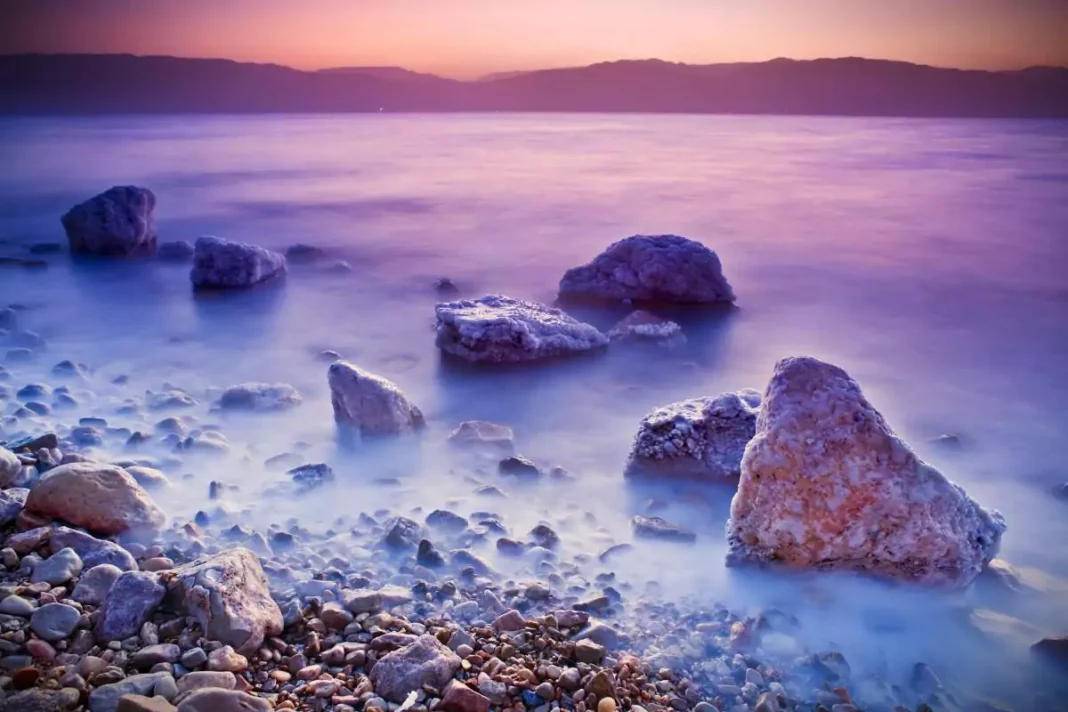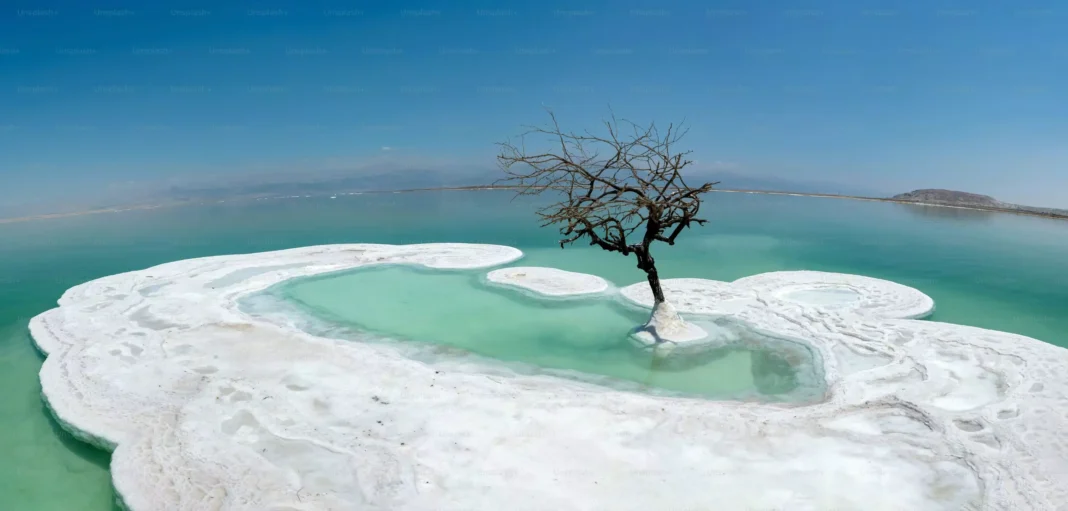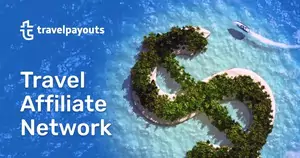The Dead Sea, a salt lake bordering Jordan to the east and Israel to the west, is a unique natural wonder known for its exceptionally high salt concentration. This extraordinary salinity allows visitors to effortlessly float on the water’s surface, an experience unlike any other. Beyond its buoyancy, the Dead Sea offers stunning landscapes, mineral-rich mud with therapeutic benefits, and proximity to fascinating historical sites.
Why Visit the Dead Sea?
The Dead Sea attracts millions of visitors annually, drawn by its unique properties and diverse attractions. Whether you seek relaxation, adventure, or cultural exploration, the Dead Sea offers something for everyone.
Floating in the Dead Sea
The most popular activity at the Dead Sea is undoubtedly floating in its buoyant waters. The high salt content, approximately ten times saltier than the ocean, makes it impossible to sink. This unique experience is not only fun but also therapeutic, as the minerals in the water are believed to have healing properties for various skin conditions.
Therapeutic Mud and Spa Treatments
The Dead Sea mud, rich in minerals like magnesium, calcium, and potassium, is renowned for its therapeutic benefits. Many visitors indulge in mud baths and spa treatments, believing the mud can alleviate skin problems, improve circulation, and relieve joint pain.
Historical and Religious Sites
The Dead Sea region is steeped in history and religion. Nearby attractions include Masada, an ancient fortress with breathtaking views, and Qumran Caves, where the Dead Sea Scrolls were discovered. These sites offer a glimpse into the rich past of the region.
Breathtaking Landscapes
The Dead Sea is surrounded by stunning desert landscapes, with dramatic cliffs and canyons rising from the shoreline. The unique geological formations and the vast expanse of the lake create a truly awe-inspiring panorama.
Things to Do at the Dead Sea
Relax and Float
Spend a day enjoying the unique sensation of floating in the Dead Sea. Remember to bring water shoes to protect your feet from the salt crystals on the lakebed.
Indulge in Spa Treatments
Numerous resorts and spas along the Dead Sea offer a variety of treatments using the mineral-rich mud and water. Enjoy a relaxing massage, mud wrap, or facial.
Explore Masada National Park
Visit the ancient fortress of Masada, a UNESCO World Heritage Site. Take a cable car to the top for panoramic views of the Sea and surrounding desert. * Address: Masada National Park, Southern District, Israel * Hours: 8:00 AM – 4:00 PM (Sunday – Thursday), 8:00 AM – 5:00 PM (Friday and Saturday) * Contact: +972 8-658-4207
Discover the Qumran Caves
Explore the Qumran Caves, where the Dead Sea Scrolls were discovered in the 1940s. Learn about the historical and religious significance of these ancient texts. * Address: Qumran National Park, Southern District, Israel * Hours: 8:00 AM – 5:00 PM (Summer), 8:00 AM – 4:00 PM (Winter) * Contact: +972 2-994-2517
Hike in the Judean Desert
Embark on a hiking adventure in the Judean Desert, exploring canyons, oases, and ancient ruins. Several marked trails cater to different fitness levels.
Visit Ein Gedi Nature Reserve
Discover the lush oasis of Ein Gedi, with its waterfalls, springs, and diverse flora and fauna. Hike through the reserve and spot ibex, hyrax, and various bird species. * Address: Ein Gedi Nature Reserve, Southern District, Israel * Hours: 8:00 AM – 5:00 PM (Summer), 8:00 AM – 4:00 PM (Winter) * Contact: +972 8-658-4285
Where to Stay at the Dead Sea
The Dead Sea offers a variety of accommodation options, from budget-friendly hostels to luxurious resorts.
Dead Sea Resorts
Experience world-class amenities and pampering spa treatments at one of the many Dead Sea resorts. Many resorts offer private beaches, swimming pools, and gourmet dining.
Dead Sea Hotels
Choose from a range of hotels offering comfortable accommodations and convenient access to the Sea and nearby attractions.
Dead Sea Hostels
For budget-conscious travelers, hostels provide affordable lodging and a social atmosphere.
Tips for Visiting the Dead Sea
- Avoid shaving or waxing before entering the water, as the salt can irritate sensitive skin.
- Wear water shoes to protect your feet from the salt crystals.
- Bring sunglasses and a hat to protect yourself from the strong sun.
- Drink plenty of water to stay hydrated.
- Do not submerge your head underwater, as the salt water can sting your eyes.
- Shower after swimming to remove the salt from your skin.
- Respect local customs and dress modestly when visiting religious sites.
Practical Information
Getting to the Dead Sea
The Dead Sea is easily accessible by car or bus from Jerusalem and Tel Aviv. Several tour operators also offer day trips and excursions to the Sea.
Currency Exchange
The currency in Israel is the New Israeli Shekel (ILS). ATMs are widely available, and credit cards are accepted in most establishments.
Transportation
Public transportation is available, but renting a car offers more flexibility for exploring the region. Taxis are also readily available.
Cultural Etiquette
Israel is a diverse country with a mix of cultures and religions. Dress modestly when visiting religious sites, and be mindful of local customs.
Real-Life Experiences
“Floating in the Dead Sea was an unforgettable experience. It felt like I was weightless, and the scenery was breathtaking. The mud treatment at the spa was also amazing, my skin felt so soft afterwards.” – Sarah, UK
“Visiting Masada was a highlight of my trip. The history and views were incredible. I also enjoyed hiking in the Judean Desert and exploring the Ein Gedi Nature Reserve.” – David, USA
Transliteration: Essential Hebrew Phrases
Greetings
- Hello: Shalom (shah-LOHM)
- Goodbye: Lehitra’ot (leh-hit-rah-OHT)
- Thank you: Toda (toh-DAH)
- Please: Bevakasha (be-va-ka-SHAH)
Directions
- Where is…?: Eifo…? (EH-foh…?)
- Left: Smol (smohl)
- Right: Yamin (yah-MEEN)
- Straight ahead: Yashar (yah-SHAR)
Dining
- The menu, please: Et ha-tapuz, bevakasha (et ha-tah-POOZ, be-va-ka-SHAH)
- Delicious: טעים (ta-EEM)
- Water: Mayim (MAH-yim)
- Bill, please: Cheshbon, bevakasha (chesh-BOHN, be-va-ka-SHAH)
Emergencies
- Help!: Ezrah! (ez-RAH!)
- Police: Mishtara (meesh-tah-RAH)
- Hospital: Beit cholim (beit choh-LEEM)
- Doctor: Rofe (roh-FEH)
Additional Tips:
- Hebrew is written from right to left.
- Don’t be afraid to ask for help if you need it. Most Israelis are happy to assist tourists.


